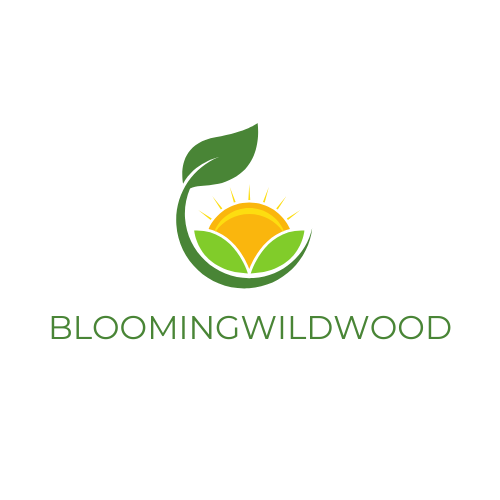In a world buzzing with distractions, finding focus can feel like trying to herd cats. For those navigating ADHD, the search for effective solutions often leads to a pharmacy aisle packed with colorful pills. But what if nature has a few tricks up its sleeve? Herbal remedies for ADHD are gaining traction, offering a more holistic approach that’s as refreshing as a morning cup of chamomile tea.
Imagine swapping out that daily dose of medication for a natural remedy that might just help calm the chaos. From ginseng to ginkgo biloba, these plant-based options could provide the support needed to tackle tasks with renewed vigor. With a sprinkle of humor and a dash of curiosity, let’s dive into the world of herbal remedies and discover how they might just be the secret ingredient for a more focused life.
Herbal Remedies for ADHD
Attention Deficit Hyperactivity Disorder (ADHD) affects millions of individuals worldwide, presenting challenges in maintaining focus, controlling impulses, and managing energy levels. Symptoms typically appear in childhood, but they can persist into adulthood. It is characterized by inattention, hyperactivity, and impulsivity. Research indicates that ADHD affects approximately 5% of children and 2.5% of adults globally.
Diagnosis involves clinical evaluation, often using standardized assessment tools. Medical professionals may observe behavior patterns over time and gather information from parents and teachers. Effective management usually combines behavioral therapy and medication, but many seekers find additional support through alternative means.
Common symptoms of ADHD include difficulty organizing tasks, forgetfulness in daily activities, restlessness, and excessive talking. These symptoms can impair academic performance, workplace productivity, and social interactions. Individuals with ADHD may experience co-occurring conditions like anxiety and learning disabilities.
Treatments vary widely, and many individuals explore more holistic approaches, including dietary changes, lifestyle adjustments, and herbal remedies. Ginseng and ginkgo biloba are two herbs that many claim contribute positively to focus and concentration. These natural options can complement traditional treatments and provide individuals with personalized management strategies.
Understanding ADHD’s complexities is crucial for effective treatment. Acknowledging each person’s unique experiences helps in developing better management plans. Engaging with health professionals ensures access to comprehensive information and support tailored to individual needs.
Understanding Herbal Remedies for ADHD

Herbal remedies provide alternative options for those managing ADHD symptoms. They’re often favored for their natural properties and fewer side effects compared to pharmaceuticals.
Common Herbs Used for ADHD
Ginseng, an adaptogen, may enhance cognitive functions. Ginkgo biloba supports blood flow to the brain, potentially improving focus and memory. Rhodiola rosea shows promise for reducing fatigue and increasing mental performance. Bacopa monnieri has been linked to improved memory and attention span. Each of these herbs can contribute positively to managing ADHD symptoms.
Mechanisms of Action
Adaptogens like ginseng and rhodiola work by regulating stress responses, which may lessen ADHD symptoms. Ginkgo biloba enhances circulation to the brain, promoting cognitive clarity. Bacopa monnieri contains compounds that support neurotransmitter function, vital for attention and learning. Understanding these mechanisms helps in selecting appropriate herbal supplements for individual needs.
Evidence and Research on Herbal Remedies
Research indicates a growing interest in herbal remedies for ADHD. Clinical evidence supports their use as potential alternatives to traditional medications.
Clinical Studies and Findings
Clinical studies demonstrate various effects of herbal remedies on ADHD symptoms. One study highlighted ginkgo biloba’s improved attention and cognitive function in children with ADHD. Another research found that bacopa monnieri enhanced memory and learning capabilities. Ginseng has shown promise in reducing hyperactivity and impulsivity, while rhodiola rosea helped regulate stress-related symptoms. Data suggests that these herbs can contribute positively to cognitive performance and focus. More research is essential to understand their efficacy fully and establish standardized dosages.
Expert Opinions
Experts in herbal medicine recognize the potential of these natural remedies for managing ADHD symptoms. They emphasize the importance of personalized treatment plans that incorporate individual needs. Many professionals recommend starting with smaller doses to monitor effects. Regular consultations with healthcare providers ensure safe integration of herbal options into existing treatment plans. Furthermore, collaboration between patients and practitioners can lead to more tailored outcomes. Continued research and open dialogue remain crucial for validating these approaches in ADHD management.
Benefits and Risks of Herbal Remedies
Herbal remedies offer a variety of potential benefits for managing ADHD symptoms. Individuals often report improved focus and reduced hyperactivity when using specific herbs. Ginkgo biloba can enhance cognitive function and attention, making it a popular choice. Bacopa monnieri supports memory and learning, contributing to better academic performance. Ginseng may improve energy levels, assisting those who struggle with fatigue. Additionally, rhodiola rosea helps regulate stress responses, promoting a calmer state of mind.
Despite these benefits, possible side effects exist with herbal remedies. Some users may experience gastrointestinal issues like nausea or upset stomach. Allergic reactions can occur, especially for individuals with known sensitivities. Ginkgo biloba may interact with blood thinners, increasing bleeding risk. Ginseng can lead to insomnia or headaches in some cases. Close consultation with healthcare providers helps navigate these risks and ensure safe use of herbal options. Monitoring any effects from herbal treatments ensures adjustments can be made as necessary.
How to Use Herbal Remedies Safely
Using herbal remedies for ADHD can provide benefits, but safety remains a primary concern. Understanding appropriate dosages and seeking professional guidance enhances effectiveness.
Dosage Recommendations
Starting with smaller doses is vital when using herbal remedies for ADHD. Gradually increasing dosage helps gauge individual reactions. For instance, ginkgo biloba often begins with 120 to 240 mg daily, while bacopa monnieri is usually taken at 300 to 450 mg per day. Monitoring effects throughout the initial period provides insight into tolerability. It’s essential to remember that each herb’s impact may vary, necessitating adjustments based on personal experiences.
Consultation with Healthcare Providers
Consulting a healthcare provider ensures safe integration of herbal remedies into existing treatment plans. Medical professionals can assess individual health conditions and current medications. Open communication about herbal options facilitates personalized recommendations. Routine check-ins allow for ongoing evaluation, ensuring any potential interactions are managed effectively. Fostering a collaborative relationship with a healthcare provider enhances safety and maximizes the benefits of herbal remedies for ADHD.
More Effective Strategies
Exploring herbal remedies for ADHD offers a promising avenue for those seeking alternative solutions. With their natural properties and potential benefits, herbs like ginkgo biloba, bacopa monnieri, ginseng, and rhodiola rosea may help improve focus and manage symptoms effectively.
It’s essential for individuals to approach these remedies with caution and seek guidance from healthcare professionals. Personalized treatment plans can ensure safe integration of herbal options while monitoring for any interactions or side effects.
As interest in natural alternatives grows, continued research and open dialogue will play a vital role in understanding how these remedies can complement traditional approaches. Embracing a holistic perspective may lead to more effective strategies for managing ADHD and enhancing overall well-being.

